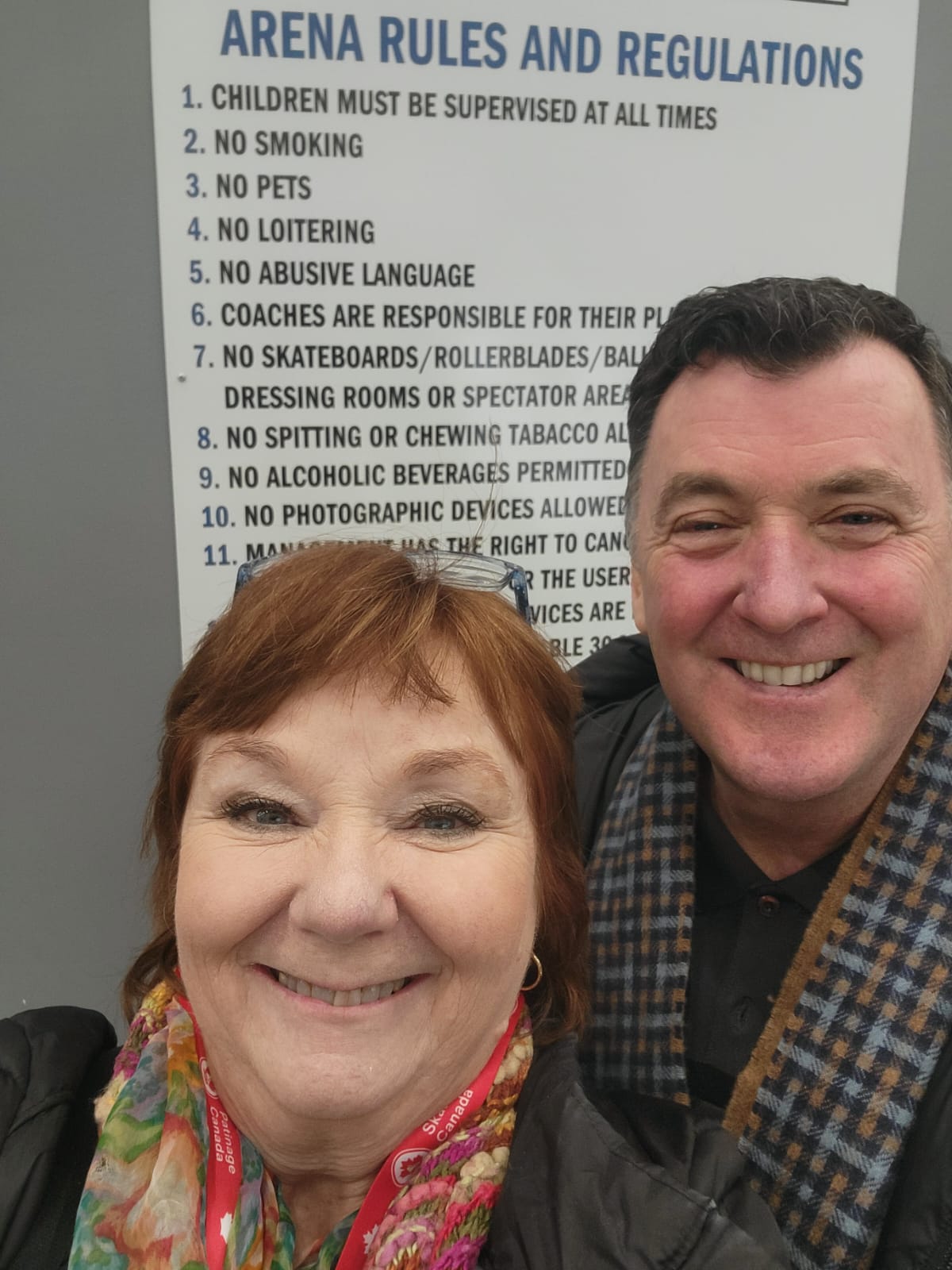article

One of the fun things about this event is seeing old friends from around the country and yesterday it was my turn to chat with coach of Olympic Champions and two-time Olympic Silver medallist and World Champion Brian Orser. What follows is part of my fascinating conversation:
Pj – “Did you have to compete at an event like this?”
B – “Yes. They had Divisional events in my day as the qualification for Nationals and I remember competing and it was a big deal.”
Pj – “What are the advantages of competing at the Challenge for your skaters?”
B – “Frankly speaking, there is no downside. It’s an important step on the way to Nationals and whether you skate well or not, there are lessons to be learned. You can go home after this event and keep working over the next six weeks with a view to having your best performance happen in Laval. For those skaters like the Seniors who automatically qualify, this is another chance to get your programs out and get feedback, so you know what to work on in the gap between events.”
Pj – “More specifically, what’s going on inside the skater’s mind?”
B – “Psychologically either way – with a good skate or a bad one it is an important step for the skaters. I have always believed in skaters owning their performance, so if you did have that bad skate, and it wasn’t related to injury, being able to identify the moment where things started to go off the rails is important. Believe me, they all know that moment. Whether it’s something that went wrong on the bus or your skate lace broke, or you bumped into another skater on the warmup, there’s a moment that changes everything and you need to learn from it. Conversely, when you have a great skate, you need to figure out how to replicate that. There are always important lessons to learn. Either way, the performance belongs to the skater, and it can be painful to look at what went wrong but it’s essential.”
Pj – “Can you tell me about any surprises along the way?”
B – “If this is a qualification event, you have to make sure that you can get through because we have all seen situations where the best skaters don’t always make it through to Nationals. I remember years ago a young woman who was training with us and who came in 38th place in the short program at Challenge. She pulled up to 18th in the free, which was remarkable and once she got to Nationals, she finished in 2nd place after the short program and finished in 3rd overall. You never know what can happen.”
Pj – “Anything else?”
B – “You know in my experience in an Olympic year, my skates at Nationals weren’t great because I was already thinking about the Olympic Games and what I had to do there. I expect for some of the skaters here, it might be the same thing as they are focusing their attention on Nationals in January in Laval. The tricky part though is always making sure in the present that you trust in the training, forget about the rest, and ensure that you pay enough attention to make it through to the next round.”
Amazing insight.
From where I sit, it’s no coincidence when skaters succeed. They benefit from the wisdom of the coaches who guide them.
Don’t forget to follow @skateontario on your favourite social media platform and share the #SkateOntarioProud hashtag to show our skaters your support.
Previous Post
Friendship is in the Air…and at the RinkNever Miss an Update
Be the first to know about upcoming Skate Ontario events and special updates—subscribe today!
By submitting this form, you are consenting to receive marketing emails from: . You can revoke your consent to receive emails at any time by using the SafeUnsubscribe® link, found at the bottom of every email. Emails are serviced by Constant Contact


